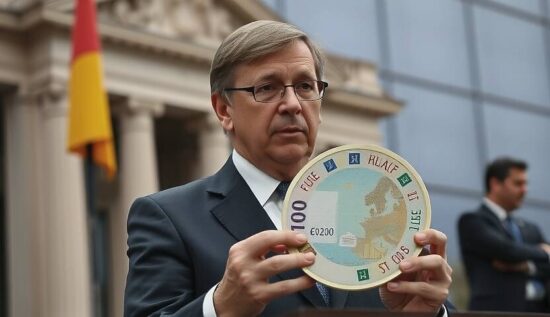Interview with Burkhard Balz, a member of the German central bank’s executive board, reveals his views on the digital euro, set to be introduced in the coming years.
“I see this as a step forward to make our currency future-proof and, in the end, a clear sign of more European autonomy” he said.
Balz emphasized that whether the euro is in the form of cash or digital, it makes little difference. “We’re experiencing every day that our world is becoming increasingly digital. Innovations also affect our monetary system. We, as a central bank, have responded to this with the digital euro project.”
Regarding the public’s concern about total surveillance, Balz said, “As central banks, we have no interest in these data. It’s also being discussed that, up to a certain amount, transactions with the digital euro could be as anonymous as cash, with only the payer and payee able to see transaction details. Amounts of 100 to 150 euros per transaction are being considered.”
Balz stressed, however, that in the context of criminal investigations, banks and central banks can still be required to provide data on transactions, just as they can today. “There are no exceptions for the digital euro. The rules on money laundering will, of course, also apply. One thing is clear: no central banker can have an interest in creating new problems with the digital euro.”
Balz also highlighted the need for European autonomy, particularly in the face of the Trump administration’s design and China’s rapid progress in central bank digital currencies. “We must, in essence, clearly represent our positions and interests. The handling of the US and China will be rough. We must hold fast.”
Balz emphasized that the central bank has no plans to abolish cash, citing the upcoming introduction of a new banknote series in 2029. “We stand by cash, and we will continue to promote it and offer a choice of payment methods. Whenever people want to pay with cash, that should be possible.





